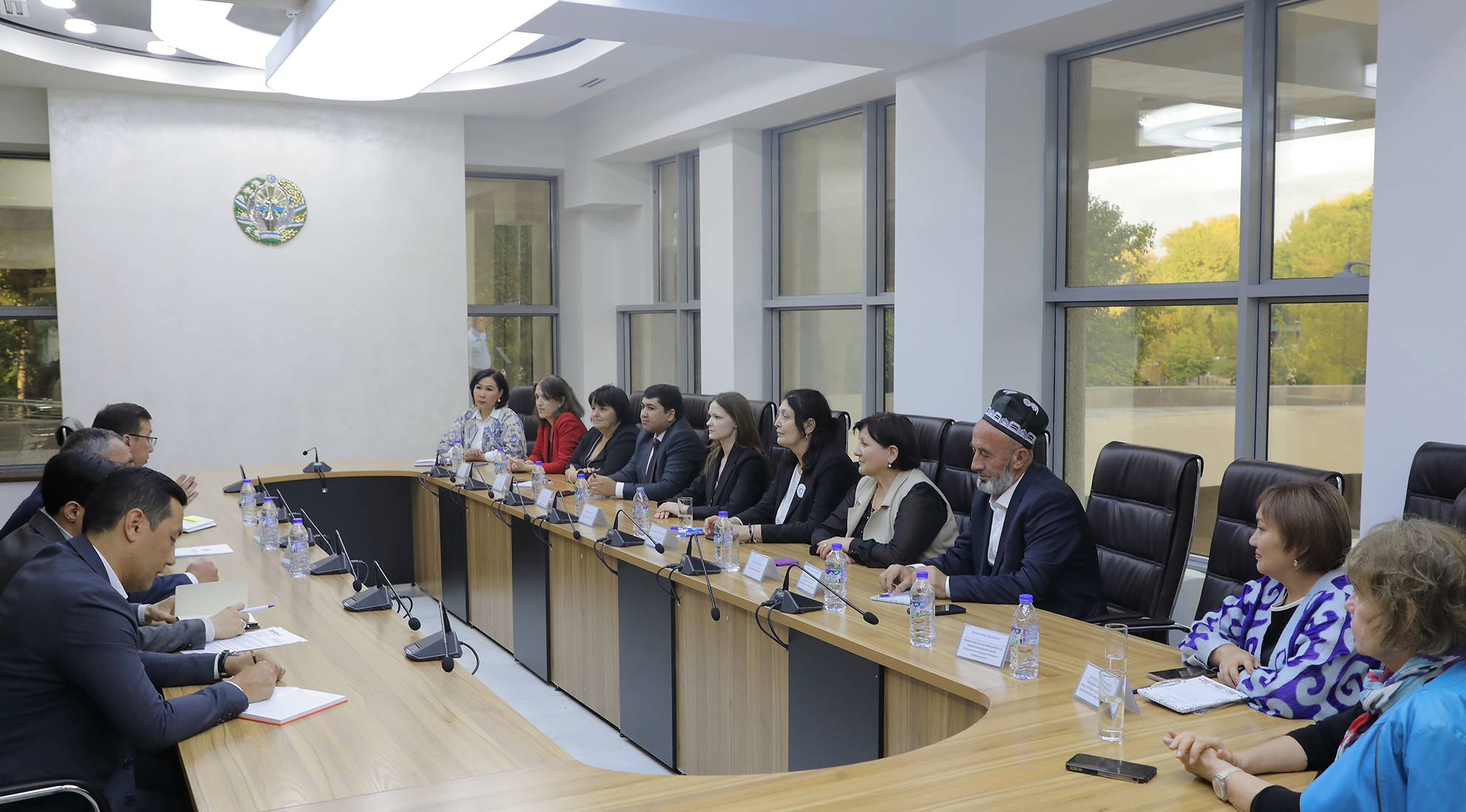
The second learning visit of the KIX EMAP Rapid Customised Country Support (RCCS) in Europe and Central Asia, took place in Tashkent, Uzbekistan from 8 to 11 October 2023. Eight representatives of the Ministries of Education, NGOs and universities from Georgia, Kyrgyzstan, Moldova and Tajikistan took part in the learning visit. Over the course of three days, participants visited various educational sites to deepen their comprehension of the inclusive education policies and practices in Uzbekistan. This learning visit is one of two country visits conducted as part of the RCCS activities to facilitate the exchange of best practices in inclusive education among consortium countries.
The first day of the visit commenced at the Inclusive School No. 134 where participants were introduced to teaching practices and methods, children’s achievements and perspectives from parents. Consortium members engaged in enlightening discussions with the directors of schools No. 70 and No. 324, No. 55, and No. 29, gaining valuable insights regarding the integration of Japanese inclusive education practices in Uzbek pilot schools. The day continued with a visit to the ‘Tashkhis’ Republican Center of Career-Guidance and Pedagogical-Psychological Diagnostics, where consortium members were introduced to the centre’s work and the legal and regulatory framework underpinning the implementation of inclusive education policies in Uzbekistan.
The second day was dedicated to exploring the experiences of non-governmental organisations and inclusive practices in early childhood education. Throughout the day, consortium members had the opportunity to meet with representatives from the ‘Umidvorlik’ Center for Support of Children with Disabilities and Their Families and the Inclusive Theater ‘LIK,’ and visited the inclusive kindergarten-school ‘Logo Garden.‘ During these meetings, consortium members familiarised themselves with their methodologies, ongoing projects and achieved outcomes. They also had the chance to exchange insights and experiences related to inclusive education for children with autism and other mental disorders. The day concluded with a visit to the Ministry of Preschool and School Education of the Republic of Uzbekistan, where consortium members met with Deputy Minister Kenjayev Dilshod Mutalibovich, who presented a valuable overview of Uzbekistan’s inclusive education policies.
The final day of the program centred around teacher training for inclusive education. Participants explored various departments at Chirchik State Pedagogical University (CSPU), including the Center for Rehabilitation of Children with Disabilities and the Department of Special Pedagogy, and engaged in a productive meeting with the university’s rector. Throughout these engagements, consortium members acquired valuable insights into the training and professional development programs designed for teachers involved in inclusive education in Uzbekistan and exchanged experiences and best practices from their respective countries.
The visit concluded with a roundtable discussion that brought together consortium members, representatives from the organisations participating in the learning visit, members of the KIX EMAP National Steering Committee for Uzbekistan and other key stakeholders in the field of inclusive education in Uzbekistan. This roundtable session marked the culmination of the three-day visit, offering a platform for in-depth discussions, exchange of insights and reflections on the key findings from the visit, as well as inclusive education policies and practices across all five participating countries.
During the two Learning Visits, the first of which took place in Tbilisi, Georgia, participants identified areas for policy improvements in teaching children with disabilities and provided recommendations to promote inclusive education among the consortium countries. These findings will inform their efforts to create national situational analysis reports, inclusive education databases and a cross-country comparative analysis.
The RCCS activities will conclude with a final event scheduled for February 2024. During this session, each country team will share their insights and discoveries regarding inclusive education policies and practices, and a comparative analysis report will be presented. The event will welcome key experts in the field of inclusive education from the consortium countries and beyond.
Watch highlights from the learning visit: https://www.youtube.com/watch?v=AC-xVELhVaM
